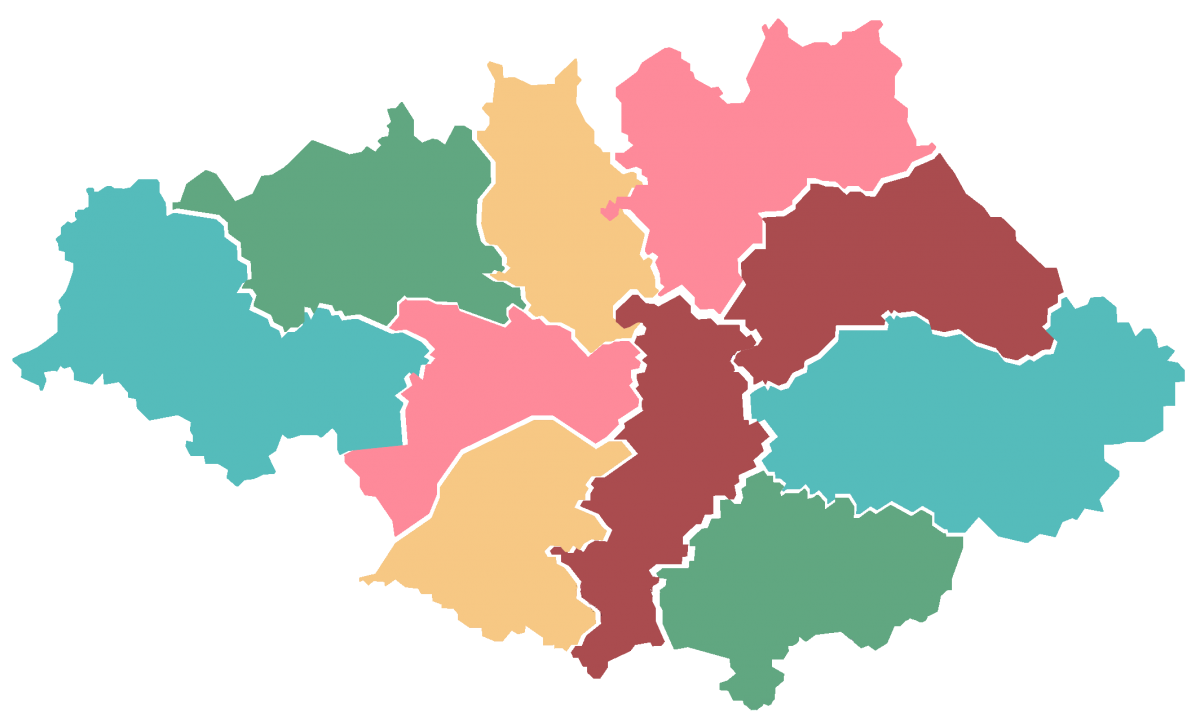 GM Cooperative Commission
GM Cooperative Commission
Making Greater Manchester the most cooperative place in the UK
 GM Cooperative Commission
GM Cooperative CommissionMaking Greater Manchester the most cooperative place in the UK
by Kellie Bubble
Last year GM Mayor Andy Burnham announced the creation of a 'Co-operative Commission' to explore how to best support co-op development in the city.
The Commission since been gathering evidence on the opportunities for, and barriers to, co-op growth, and on what makes supportive conditions for co-op formation and development in a city. Unicorn's Kellie is sitting on the nine-person panel as the worker co-op representative, here she shares some thoughts on a more co-operative future.
“At their best, and most commonly, coops emerge as solutions to problems. A coming together of people to find a collective solution toward a common good. Do you remember why the Rochdale Pioneers started selling basic foods? They noticed an injustice - poor and hungry hard working folk were being sold adulterated food; sand in the oatmeal, plaster of Paris in the flour. Selling pure and wholesome foodstuffs at the correct weight hardly seems radical but it was, that’s why others tried so hard to destroy their little Toad Lane shop!
Twenty three years ago Unicorn opened its doors to trade, based on clear principles, to challenge the dominant food retail culture and its economic, social and environmental impact on people and planet - put simply decent food for all. Again, a group of people coming together to work towards a practical solution to a societal problem. A problem highlighted in a recent report by The RSA's Food, Farming and Countryside Commission, which points out the
true cost of our current food system "is simply passed off elsewhere in society - in a degraded environment, spiralling ill health and impoverished high streets.”
Once a structural injustice of the current normal and accepted way of doing things is noticed and has become a little clearer, collective action can harness the entrepreneurial energy inspired by the end goal of social, economic and environmental good. Sounds so much better than aiming for extra pounds on the bottom line simply because it is. No BS required.
We see examples throughout history all over the globe and currently the ground is so very fertile for co-operative solutions. From the Rojava co-operatives in Syria, Fairbnb in Venice and the new and exciting close to home Equal Care Co-op in West Yorkshire's Calder Valley, co-operative seeds are being planted and are growing stronger. There are so many different kinds of co-ops - as many co-operative solutions as there are problems that the current global system creates, we just don’t get to hear about them as much as we should. Some of the co-ops are more radical than others but most are trying to buck the trend that the bottom line is merely profit and are shouting out that a more just system for people and planet is something worth working for.
Co-ops work. Britain’s thousands of member owned co-operatives are worth £36 billion to the economy, but it’s not just the economy that benefits...
As a member of a worker co-op for 20 years I understand the challenges but day in day out see the benefits too, the ones that ripple out beyond individuals into wider society; to a more equitable economy, more respect for people and more nurture for the planet we care for.
The fabric of co-ops has beautiful threads weaving positive purpose throughout them, as fellow Commissioner Cliff Mills argues, "in the modern world, mutuals and co-operatives are providing new solutions to old problems.
It’s not because they have a magic wand;
• it’s because they don’t need to include an investor’s profit-margin in their selling price;
• it’s because the people who depend on the business own it, and make sure it responds to their needs;
• it’s because customers and workers are bound to find better solutions for customers, workers and local communities, than investors.
At this critical time when it is so difficult for governments around the world to address the biggest challenges of climate change and species extinction, and when big business is bound to focus simply on generating profits, there is an urgent need for businesses dedicated to pursuing the common good: co-operative, mutual and social enterprises".
Wouldn’t it be wonderful if the North of England, the birthplace of the co-operative movement, could be flooded with co-operative solutions to make better, for all, the way we live, work and play. We can build a better and more equitable infrastructure for the many.
Hopefully, the outcome of the commission will be a more opportunities for co-ops to flourish, more visibility of their successes, fewer barriers in their way (maybe even a helpful leg up for some) and a more accurate understanding of their contribution to wider society by agencies across the Greater Manchester Combined Authority who make decisions day in day out about the future of how we live, work and play.
The Commission wants to work with co-operatives to reduce inequality, improve education and employment and help the sector grow to make ours the most co-operative region in the UK.
Kellie Bubble is a member of the GM Cooperative Commission and works at Unicorn Grocery
The GM Cooperative Commissioners are working to promote cooperative enterprise in Greater Manchester
This site is not published by The Greater Manchester Combined Authority